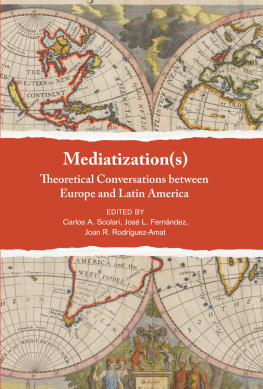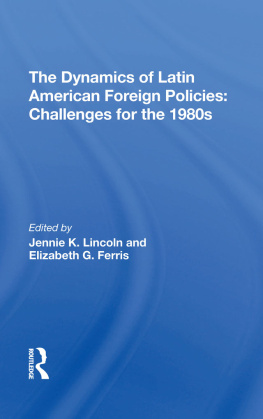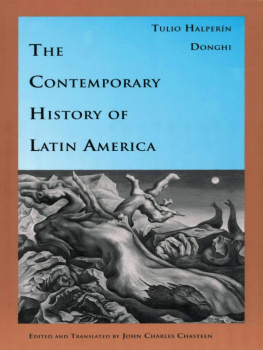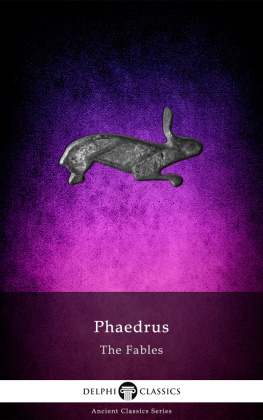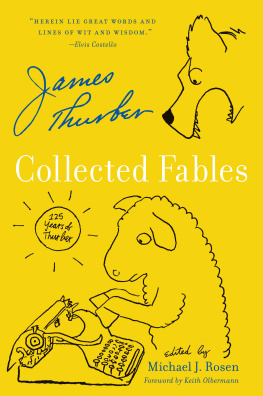Alicia Borinsky - Theoretical fables: the pedagogical dream in contemporary Latin American fiction
Here you can read online Alicia Borinsky - Theoretical fables: the pedagogical dream in contemporary Latin American fiction full text of the book (entire story) in english for free. Download pdf and epub, get meaning, cover and reviews about this ebook. year: 1993, publisher: University of Pennsylvania Press, genre: Detective and thriller. Description of the work, (preface) as well as reviews are available. Best literature library LitArk.com created for fans of good reading and offers a wide selection of genres:
Romance novel
Science fiction
Adventure
Detective
Science
History
Home and family
Prose
Art
Politics
Computer
Non-fiction
Religion
Business
Children
Humor
Choose a favorite category and find really read worthwhile books. Enjoy immersion in the world of imagination, feel the emotions of the characters or learn something new for yourself, make an fascinating discovery.

- Book:Theoretical fables: the pedagogical dream in contemporary Latin American fiction
- Author:
- Publisher:University of Pennsylvania Press
- Genre:
- Year:1993
- Rating:5 / 5
- Favourites:Add to favourites
- Your mark:
- 100
- 1
- 2
- 3
- 4
- 5
Theoretical fables: the pedagogical dream in contemporary Latin American fiction: summary, description and annotation
We offer to read an annotation, description, summary or preface (depends on what the author of the book "Theoretical fables: the pedagogical dream in contemporary Latin American fiction" wrote himself). If you haven't found the necessary information about the book — write in the comments, we will try to find it.
Alicia Borinsky: author's other books
Who wrote Theoretical fables: the pedagogical dream in contemporary Latin American fiction? Find out the surname, the name of the author of the book and a list of all author's works by series.
Theoretical fables: the pedagogical dream in contemporary Latin American fiction — read online for free the complete book (whole text) full work
Below is the text of the book, divided by pages. System saving the place of the last page read, allows you to conveniently read the book "Theoretical fables: the pedagogical dream in contemporary Latin American fiction" online for free, without having to search again every time where you left off. Put a bookmark, and you can go to the page where you finished reading at any time.
Font size:
Interval:
Bookmark:
The Pedagogical Dream in Contemporary Latin American Fiction
Alicia Borinsky
UNIVERSITY OF PENNSYLVANIA PRESS
Philadelphia
-iii-
Permission is acknowledged to reprint material from published sources. These are listed following the Index at the back of this volume.
Copyright 1993 by the University of Pennsylvania Press
All rights reserved
Printed in the United States of America
Library of Congress Cataloging-in-Publication Data
Borinsky, Alicia.
Theoretical fables : the pedagogical dream in contemporary Latin American fiction / Alicia Borinsky.
p. cm. -- (Penn studies in contemporary American fiction)
Includes bibliographical references and index.
ISBN 0-8122-3234-8
1. Spanish American fiction -- 20th century -- History and criticism. 2. Argentine fiction -- 20th century -- History and criticism. 3. Literature -- Philosophy. I. Title. II. Series.
PQ7552.N7B67 1993
863 -- dc20 93-26561
CIP
-iv-
for Jeffrey, Natalia, and Ezra
-v-
|
|
|
"Maestro," teacher, was the word Jorge Luis Borges used to refer to Macedonio Fernndez. Macedonio, an Argentine writer and philosopher, died in 1952 at age 77, relatively unknown to mainstream readers despite the profound mark he had left on a number of younger writers. was a seemingly inexhaustible source for metaphysical connections between what was written on the page and the ultimate goals reading might attain. Macedonio was "maestro," then, not only because he taught but because literature itself was viewed as a matrix for pedagogical efforts.
Contemporary Latin American fiction has attained a singular lucidity about the workings of language. Its self-reflexivity, its playful relationship to history and the everyday, frequently woven into extravagantly complicated plots, have led many to believe that an awareness of writing and reading as such is its main purpose. Although the dismantling of the illusions of realism, naturalism, and historicism figures among the effects produced by its reading, the haunting and disturbing energy of the major works of this period lies in their capacity to invoke, in disparate ways, a region not beyond literature, but through
-ix-
literature. The deferment of meaning, the questioning of the stability of the self with the attendant suspicion of the category of voice, and the dismissal of linear plots point toward something more than their own dismantling energy.
Macedonio was the most extreme and explicit -- as well as the first Latin American author to call the bluff of traditional novelistic discourse through a practice bent on overcoming and correcting its nearsightedness, but later developments proved that he would not be alone in his notion that the literary by itself was to be dismissed as the merely literary. In the work of all the writers assembled in this book -- Macedonio Fernndez, Jorge Luis Borges, Adolfo Bioy Casares, Gabriel Garca Mrquez, Mara Luisa Bombal, Jos Donoso, Manuel Puig, and Julio Cortzar -- there is an urgency to make writing fulfill the promise of its mirages. Whether through history, a new noncausal perception of the world, a nostalgic feminine realm, or the abysses opened up by fear, their works ask us to perform a reading that would take into account literature's most destabilizing effects. And yet I refer to them as "theoretical fables."
"Theoretical" attempts to name the lucidity with which language works and the universalizing force that sustains it, as though we were presented each time with all-encompassing hypotheses about the nature of representation. "Fables" refers to the fictional nature of what we read even as it suggests the effort to produce what in contemporary terms may be understood as a moral: not a clear-cut lesson to be followed but the uncovering of a path toward the intuition of its message. Theoretical fables, then, are written and received as posttheological and post-philosophical discourses, in which simulacra of philosophy, religion, theology, and history rehearse their elements as a joke in danger of reinscription.
The chapters in this book are arranged in a dialogue in which each of the readings contains, discusses, and completes or erodes another. The design is intended to engage the promise of the "theoretical" and make apparent the lucidity granted by a joint reading within fiction, since I have already assumed that it is through fiction that the aims of the theoretical are best fulfilled. I have not attempted to present an overview of contemporary Latin American fiction. The writers I discuss include established authors -- Borges, Garca Mrquez, Puig, Cortzar, Donoso -- together with others whose works, for disparate reasons, have not yet been incorporated into the set of obligatory references. Adolfo Bioy Casares's writings have been too often read only in relationship to his literary collaborations with Borges, neglecting important considerations about the most specific aspects of his work. Mara
-x-
Luisa Bombal's vision is crucial to the understanding of a privileged passivity in literature, well beyond the impact that a reading of her fiction has on gender criticism. Macedonio Fernndez's role in shaping the questions and texture of contemporary fiction will, I hope, become apparent to my readers and promote a new understanding of what is arguably the most creative fiction of the last decades.
As I interconnected the different chapters to make apparent the intensity of the vision present in each of the writers, I tried to highlight their will to persuade, the logic by which new, fragmented lessons are forged. It has become far too easy to find that literature and art celebrate their incapacity to render univocal meanings. In a sense, undecidability is the new happy ending of literary interpretation, a demagogy that relativizes individual interpretations of a given work even as it privileges critical discourse over "literature." This book has been written from a different perspective; the dialogue I establish is within fiction and, as a consequence, the text does not abound in critical notations although readers will find here pertinent historical and interpretive references.
Among the authors presented in this book are some to whom I am bound by friendship. The deaths of Jorge Luis Borges and Manuel Puig, two extremely different voices, played a role in my desire to complete this book and render testimony, to an extent, of one of their topics of conversation: an impatience with a certain kind of impoverishment as to what was perceived as literary. Borges, perhaps the most intellectual of readers, and Puig, the emotional, melodramatic delighter in poses, together gave me, in differing ways, two poles from which to rethink writing. These two authors are mutually exclusive but coexistent, and their loss prompted me to punctuate my readings of their work with personal recollection without losing sight of their impact on shaping the perspective from which I attempt to reveal the heterogeneity of the pedagogical in contemporary fiction. I am also indebted to Adolfo Bioy Casares for his friendship and the ease and rarity of his humor, and to Jos Donoso, whose reaction to what is perhaps the bleakest chapter in this book, the concluding part devoted to his work, gave reason to celebrate. The trust with which Adolfo de Obieta, Macedonio Fernndez's son, granted me access to his father's archives enabled me to deepen an understanding that would have otherwise remained sketchy.
Font size:
Interval:
Bookmark:
Similar books «Theoretical fables: the pedagogical dream in contemporary Latin American fiction»
Look at similar books to Theoretical fables: the pedagogical dream in contemporary Latin American fiction. We have selected literature similar in name and meaning in the hope of providing readers with more options to find new, interesting, not yet read works.
Discussion, reviews of the book Theoretical fables: the pedagogical dream in contemporary Latin American fiction and just readers' own opinions. Leave your comments, write what you think about the work, its meaning or the main characters. Specify what exactly you liked and what you didn't like, and why you think so.

